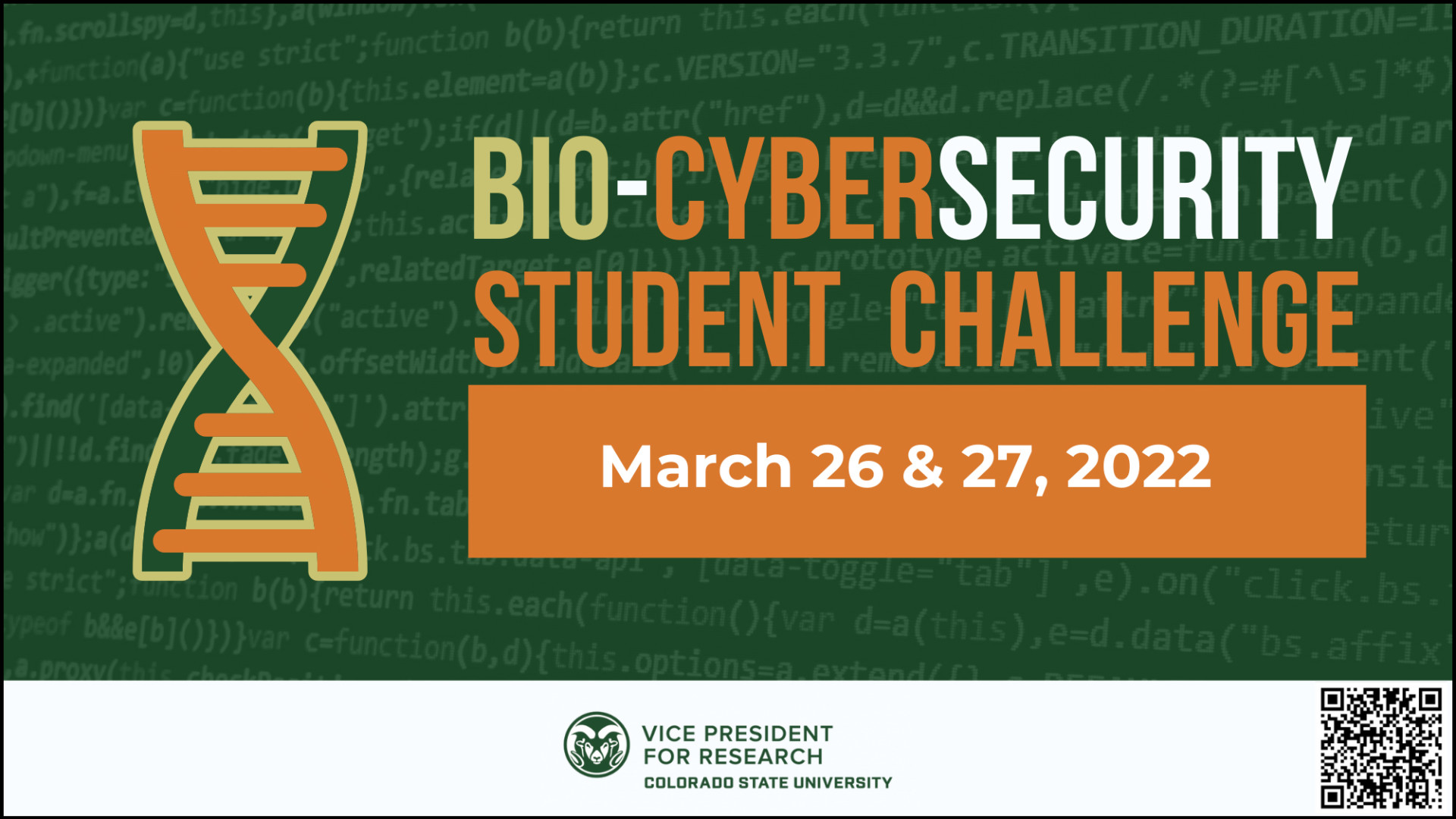
CSU will offer students a fun entry to an emerging career field at the annual Bio-Cybersecurity Student Challenge event on March 26 and 27.
Bio-cybersecurity is a fancy word for protecting critical equipment, data and operations in the life sciences industry. It is a vast and growing field, involving biotechnology manufacturing, hospitals and medical care, laboratory research, agriculture and more. The so-called bioeconomy is propelled in part by pandemic-related research, advances in DNA technology, global competition in biosciences and a move toward sustainable production of chemicals from biomass instead of petroleum. It means big data and software tethered by an internet infrastructure vulnerable to hacking.
$950 billion bioeconomy
Left unprotected, hackers have been able to manipulate DNA sequencing and interfere with development and manufacture of drugs and vaccines. Ransomware attacks can affect databases of patient information, affecting medical procedures. The National Academies of Sciences warns that “inadequate cybersecurity practices and protections expose the bioeconomy to significant risks.”
The NAS values the bioeconomy at about 5% of U.S. GDP and $950 billion, which makes it a ripe opportunity for college students seeking jobs.
“CSU is uniquely positioned to explore the vulnerabilities of life sciences and the bioeconomy to increasing cybersecurity threats and to develop solutions,” said Alan Rudolph, vice president for research at CSU. “Addressing these challenges will require multidisciplinary research collaboration and new educational efforts.”
Capitalizing on CSU’s special resources, including labs and faculty, the Bio-Cybersecurity Student Challenge will acquaint students with the industry, help with career networking and build skills that could lead to internships or jobs.
About the game
At its heart, the event is a two-day game of strategy, cyber-sleuthing and science acumen. Students will match wits and computer skills in a series of group challenges much like capture-the-flag games of childhood. CTF is a computer-based contest where teams try to penetrate websites or computer systems to find prizes, or flags, inside.
“These events provide real-word experience and hands-on training, which employers love to see. CTF play on a resume is always a great thing to show,” said CSU alum Marshall Livingston, founder of the KryptSec bio-cyber club at CSU, which won the 2019 challenge event. A video of Livingston discussing the club and game is available online.
Teams accumulate points based on performance in a series of challenges, and prizes are awarded based on totals. Cash prizes totaling $5,000 will be distributed after the event concludes. Free food is provided for all during the competition. Play is scheduled for 9 a.m. to 9 p.m. March 26, and 10 a.m. to 6 p.m. on March 27, in room 136 of the CSU Biology Building.
Contests are tailored to all skill levels and open to all students and clubs, especially from biology, health sciences, computer science and engineering.
Connecting with Discord
In addition, CSU is working with corporations to support the event and connect recruiters with students, either live during game play or via the online Discord channel created for the event. Discord is also a great place for students to connect with other participants, build teams or learn more about the event.
“Creating strategies for reducing bio-cybersecurity risks requires interdisciplinary teams, and this student challenge event will be a special opportunity for students from different majors to develop their skills together in a fun learning environment,” said Ken Reardon, associate dean for research for the Walter Scott Jr. College of Engineering and the Jud and Pat Harper Chair of Chemical and Biological Engineering.
Bio-cybersecurity has been important for CSU during the pandemic to protect the university’s COVID-19 database from cyber-attacks and ransomware attacks, which were occurring at hospitals and research centers.
The Bio-Cybersecurity Student Challenge is sponsored by the Office of the Vice President for Research and hosted by Mantel Technologies Co. Funding is provided by the Anschutz Family Foundation, which has also supported CSU research for pandemic resilience.
For more information, or to register for the event, visit the website or send queries to: vpr_biocyber@colostate.edu.